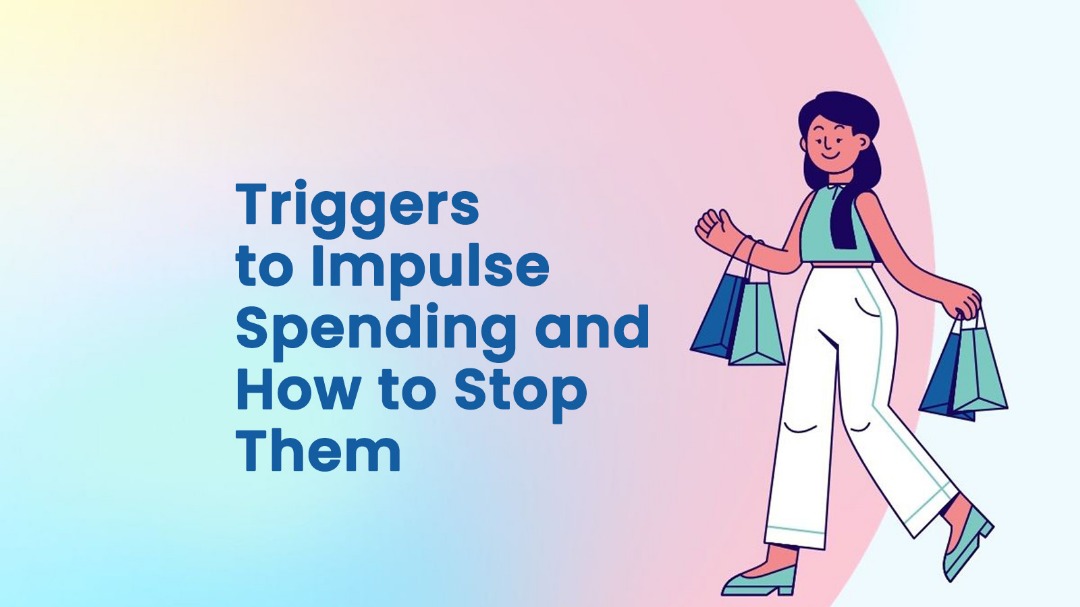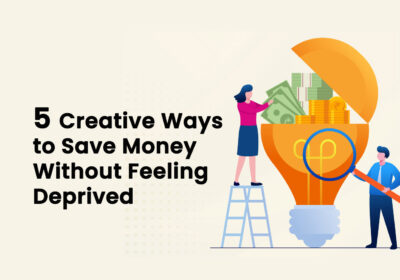Triggers to Impulse Spending and How to Stop Them

Have you ever bought something without planning, which was triggered by emotions, sales, or convenience before? For instance, seeing a pair of shoes online or a shirt in the market, and within minutes, you’ve bought them without thinking about whether you need them. That’s what impulse buying means. In this era, advanced technologies have blurred the lines between the physical and digital worlds, making it easier than ever to spend money without thinking twice. Today, with just a click or a swipe, you can purchase anything seamlessly and promptly.
However, while treating yourself occasionally is not bad, unchecked impulse spending can easily truncate your financial goals, increase your debt levels, and leave you with a sense of regret afterwards. Fortunately, it’s possible to stop impulse spending even if you are deeply immersed in it. The first crucial step is to understand what those triggers are, and once you know that, you can put strategies in place to stop them. So, come along and let’s explore this together below.
1. Discounts, promotions, and flash sales
As indicated in the introduction, advanced technologies have brought the world of buying and selling to our doors. Now one doesn't need to travel to a specific store or location to make a purchase. Not only that, but marketing of products has also become much easier, especially in the digital space. Some strategies used are discounts, promotions, etc, where limited-time offers or flash sales are offered. These usually create a sense of urgency and sometimes trick people into buying things they don’t need. This is where applying the 24-hour rule is crucial. It says do not rush to make a purchase, wait for one more day to see if you still have the urge. Oftentimes, the urge fades once the emotion or excitement passes.
2. Social influence and pressure
Another trigger that must be dealt with is social pressure. Social media has significantly increased peer pressure and elevated it to a higher level. These days, it is common for people you follow on social media to pressure you and influence your lifestyle. This is partly because many crave a sense of belonging to certain classes. For example, just regularly interacting with content, where you see others flaunting the latest phones, fashion, or lifestyle, can spark the urge to spend even if it doesn’t fit into your budget. But, you must know that life is actually not a competition; it’s about focusing on what makes you happy, and not what people think about you. Also, you can remove the temptation by unsubscribing from promotional emails and unfollowing online shops or even influencers that encourage unnecessary spending.
3. Lack of budget awareness
There is a saying that if you don’t know where you are going, then it’s definitely difficult to get to your destination. In the same way, if you don’t track your money, you may not realize how small purchases add up. In other words, without a clear budget and intentionality to follow it, it’s easy to overspend unknowingly. Therefore, it is important to have a spending plan that includes essentials, savings, etc., and an allowance for “wants.” This way, you can enjoy spending without guilt. The other bit is to try to record every purchase in a notebook or using an app. That would help to know where your money goes, create awareness, and build personal accountability.
4. Emotional spending and boredom
Last but obviously not least, it’s strange but real that there are people who shop as a way of coping with stress, sadness, loneliness, etc., or even when they are excited. But what they forget is that the solution it provides is temporary, but mostly results in regret and wastefulness. Again, because social media has become a source of happiness for many, sometimes just scrolling through shopping apps or browsing stores out of boredom can be a tricky trigger. This is because one can easily make an impulse purchase due to the convenience of a few-click payments and doorstep delivery, without having to travel to a physical shop location. Hence, it is important to find healthier alternatives, such as trying a hobby, taking a walk, reading, watching a movie or comedy, among others.
In conclusion, impulse spending may feel good in the moment, but it often leaves you with regret and less money for the things that truly matter. By recognizing the triggers and managing your spending wisely, you can maintain control over your finances and achieve your goals.
At SRF Micro Credit, we understand that sometimes what holds people back is not just impulse spending, but also the lack of access to timely financial support. That’s why we provide flexible loan packages to help you focus on your priorities. Whether it’s starting a business, expanding one, or funding a personal project, we are there for you.
Contact us or visit SRF Micro Credit at Lapaz, Main Traffic Light - Adjacent Ecobank in Accra, and move closer to financial dreams.
Follow SRF on Facebook, Twitter, Instagram, and LinkedIn for more.


